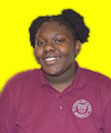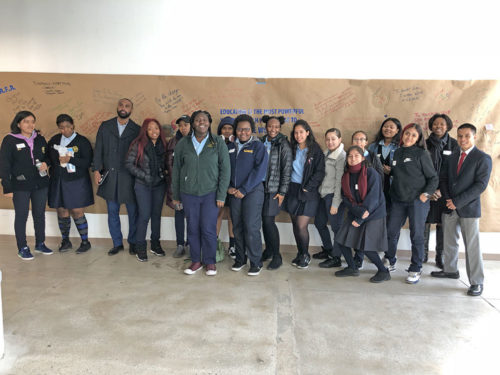By Atta Gould

My name is Atta Gould. I am here to speak with you about the benefits of an education filled with Science, Technology, Engineering, the Arts and Mathematics, or S.T.E.A.M.
But before we get into the heavy stuff, I’d like to tell you a bit about myself and my story. Originally, I was not the biggest fan of S.T.E.A.M. or S.T.E.M. I thought it was a bit nerdy, which is funny because I’m a nerdy person.
However, when I entered high school I was introduced to the idea through my computer teacher, Mr. Matthew Mobijohn. I remember he took us on a trip to Microsoft and honestly I can say that it was one of the best experiences I’ve ever had.
When I was there, I got a look into what they were envisioning for the future. It was incredible. It was one of the first times I looked up and said to myself, “This is something I want to be a part of and dedicate myself to.” It was a motivator. I began to realize how much my creativity could impact society.
After that experience, I kind of went full into engineering programs. I competed in collaborative computer programming events, I did summer camps and I joined the robotics club at my school.
Now, being involved in S.T.E.A.M. allowed me to make so many connections. And I’m not talking circuitry, but I was able to meet people that would mentor me and help me with my different projects.
Nearly a year ago, I went with my school to a four-week robotics competition at New York University (NYU). I went there, of course to compete and win, but also to learn. In the end, my team and I didn’t win. As a matter of fact, we failed many times. It was stressful at times, but in that sense, I was successful.
This is because I gained a perception of success. Now what are some of your perceptions of success? Money? Winning? First-place? Happiness?

My perception of success was always winning and keeping up a nice image. Everyone had to think I was a winner and more importantly, I had to be a winner.
But NYU opened my eyes. I wasn’t winning, but instead I was learning – and not just learning to fix my code, or correct my circuitry, but also how to calm down and try again.
Failing forward. Do any of you know what that is? It’s a term that basically means learning from your mistakes and continuing. Ultimately, I grew not only as a potential engineer, but also as a person.
So I did robotics and I competed at another competition at NYU. This time, my team took third and I was happy about that. But that wasn’t where it ended, especially because if that were where it ended, I wouldn’t be here writing about something that makes me really happy.
After all of that, I decided to go to Girls Who Code. That was the best experience of my life! I was exposed to multiple coding languages and I became friends with 19 other girls! I had three amazing teachers that are mentors to me to this day and I was able to travel to the company Viacom for the program. Who watches the channels MTV, Nickelodeon, BET and CMT? That’s all owned by Viacom and I got to go to its headquarters in Time Square everyday.
They offered me, as well as the other girls, the opportunity to intern for Viacom and even work there once we become college freshman. Gaining opportunities like that taught me to strive and to keep wanting more, creating more and to keep envisioning. I think that’s something that S.T.E.A.M. as a whole teaches us.
And that’s why it is so important promote S.T.E.A.M. education and provide opportunities for students to find guidance within this field. Students deserve programs that expose them to the possibilities within S.T.E.A.M.
New technology is being created every day. It is best to have students at the forefront of that. So I challenge every adult with the responsibility to make sure our schools provide a S.T.E.A.M. education and mentorship. By ignoring the of need for S.T.E.A.M. education you are not only doing a disservice to our society, but you are also doing a disservice to our youth.
Gould is a senior at St. Joseph H.S. in Downtown Brooklyn.
